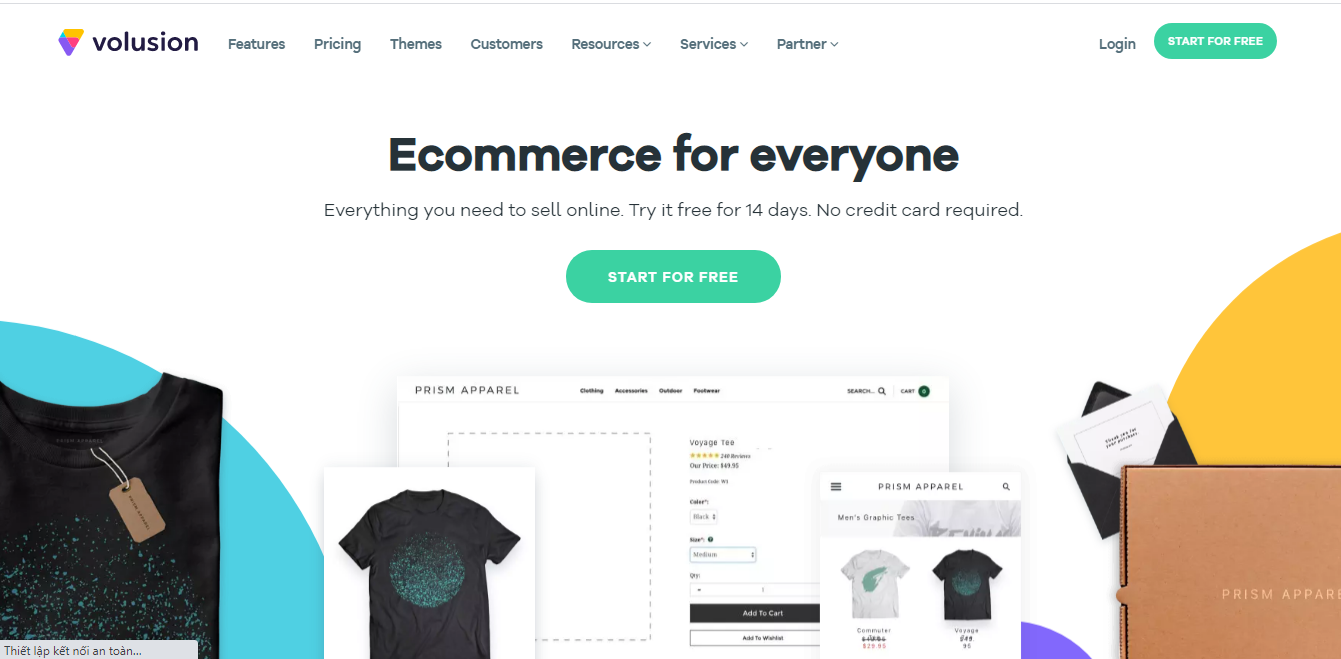If you want to start an online store, one factor that needs to be well considered is website builders.
Besides the 10 best Shopify page-builder apps we have suggested, in this article, we would like to introduce other e-commerce site builders that you shouldn’t miss if you want to start a Shopify store successfully. Check it out below!
1. Shopify
Known as one of the easiest ways to set up an online business, Shopify currently attracts more than one million businesses around the world. You don’t need any coding skills or a generous budget to build a store - Shopify has offered you 100+ professional templates, tons of helpful marketing tools, 400+ free Shopify apps, and a convenient payment method named Shopify Payments.
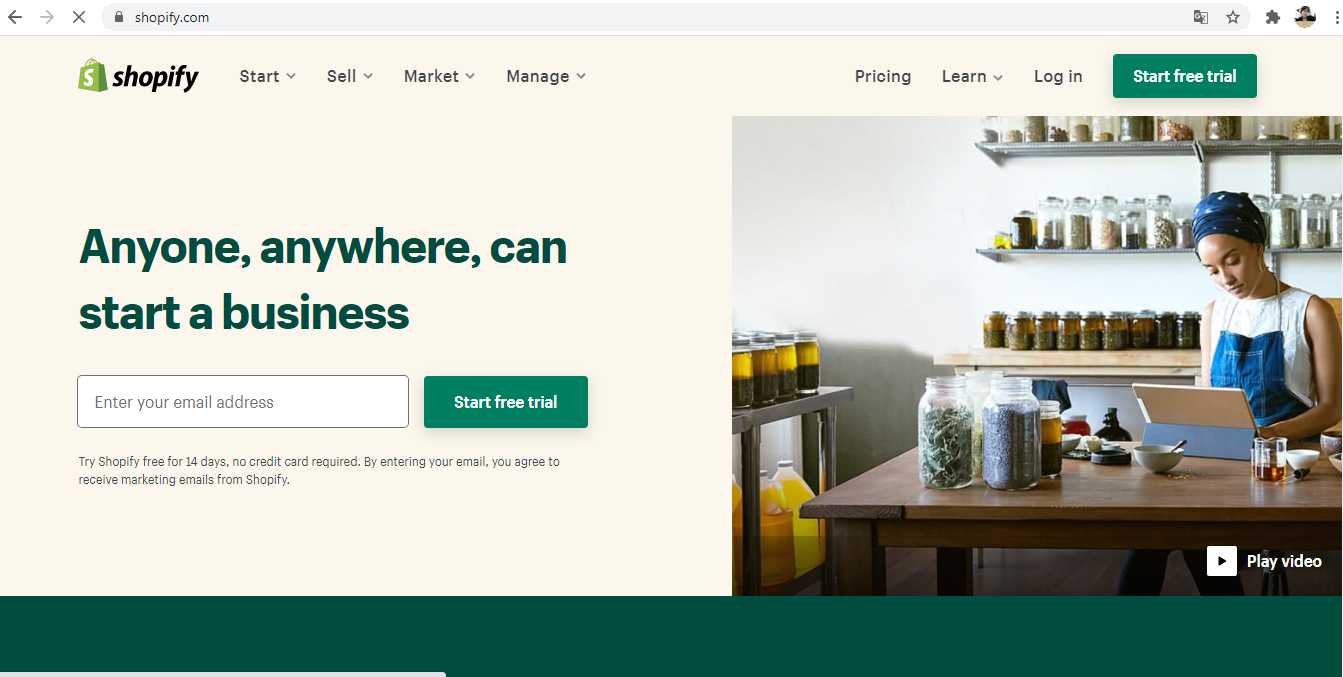
Moreover, you can also use Shopify’s partner integrations to sell products across numerous marketplaces like Etsy, eBay, and Amazon. Such a great website builder, isn’t it?
2. 3dcart
3dcart is an easy and simple shopping cart that mainly aims at online retailers. Even though its features are not as extensive as Wix or Shopify, 3dcart is still a good choice thanks to its attractive price, mobile-friendly themes, and good sales reporting.
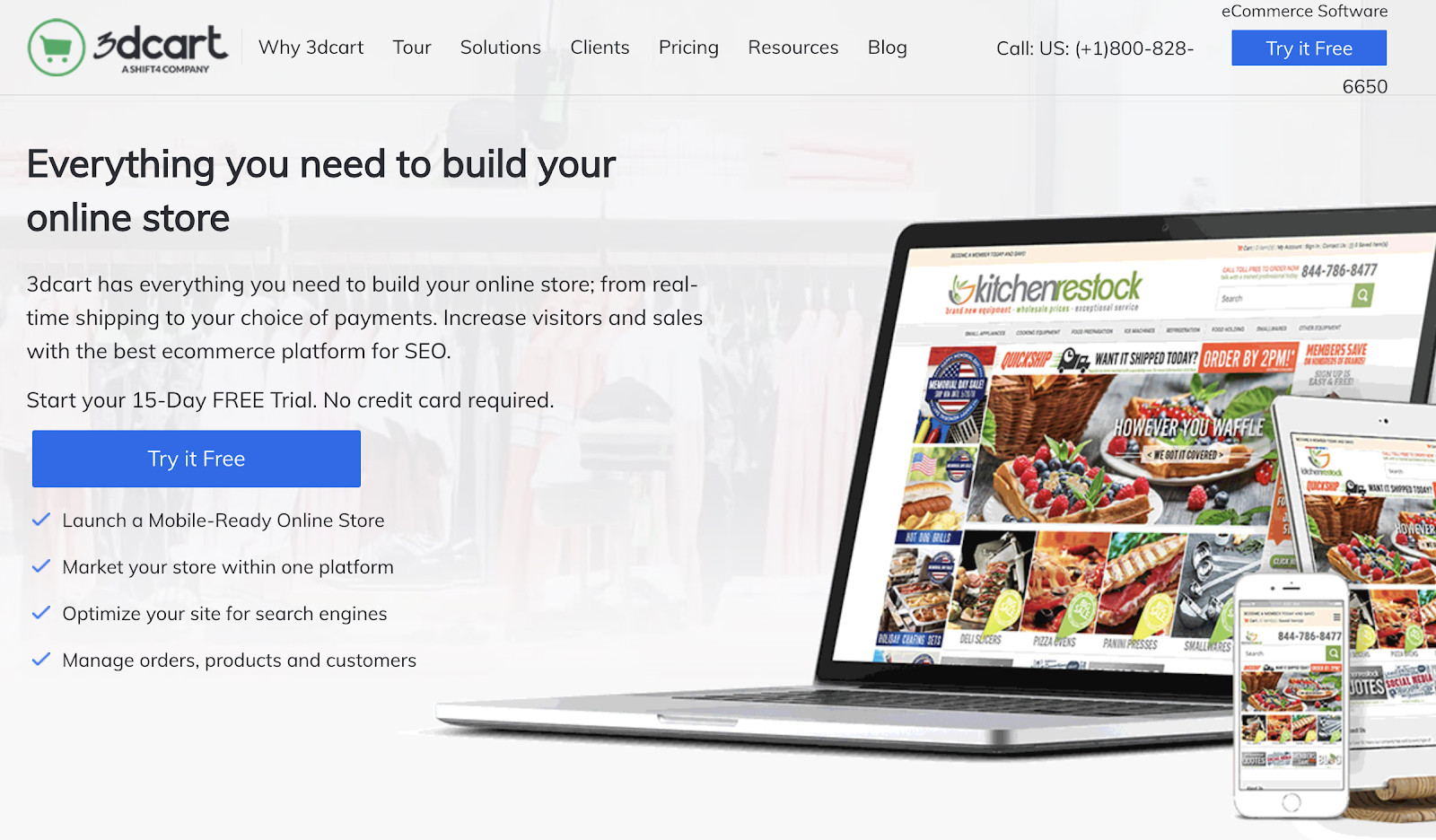
However, the weaknesses of this builder are limited templates and some difficulties while using it.
3. Weebly
Powered by Square, Weebly is ideal for SMBs that would like to sell online but can’t spend too much time on maintenance. Weebly is worth a try if you don’t want too many technical elements involved.
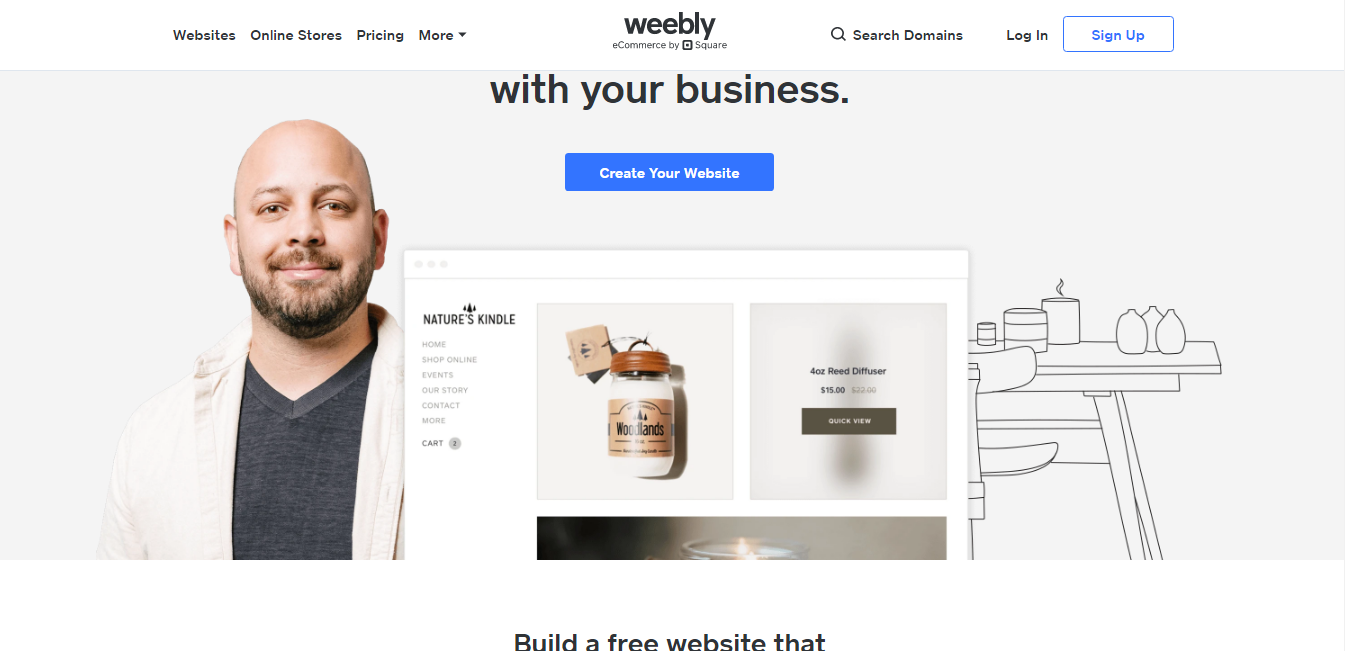
Weebly's free version only offers some basic features like coupons or real-time shipping. If you need more than that, or you just simply want to use your domain name and remove annoying ads, you’d better upgrade the version with the starting fee of $6/ month.
4. Squarespace
Similar to those websites above, Squarespace is easy to use, even if users don’t have a technical background. Nevertheless, Squarespace only accepts Stripe, Apple Pay, Paypal, and Afterpay as payment methods, and needs to be upgraded into a paid plan to start selling things online.

After choosing a template, you can customize images, texts, and colours to align with your brand. With around $9/ month, you can add Shopify Buy Button to get access to some functions like sales and growth tracking, currency support, shipping integrations, and so on…
5. BigCommerce
BigCommerce is an online builder for large companies that offers web hosting as well as many customization options for entrepreneurs. As BigCommerce doesn’t allow domain name registration, you should buy it elsewhere and then connect it to your online store.
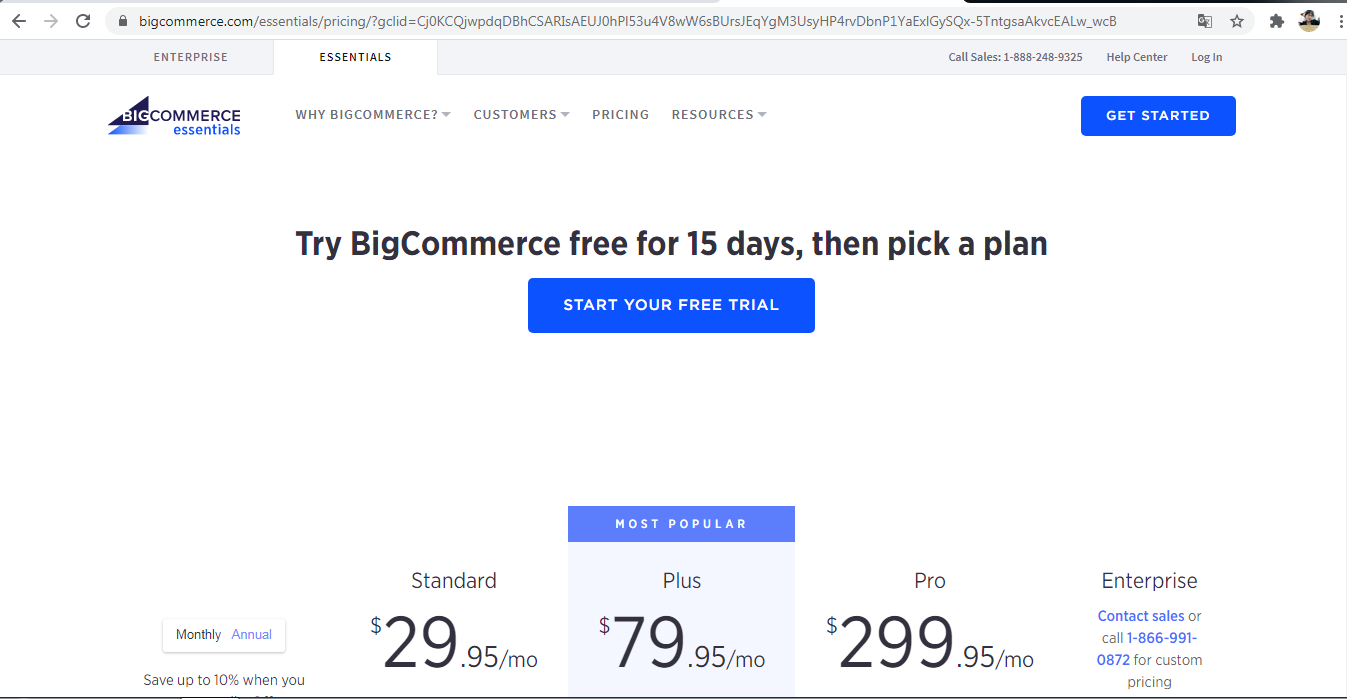
Some advanced features of BigCommerce include optimized stores, SEO apps, and multichannel sales capabilities.
6. Wix
Similar to Squarespace, the biggest drawback of Wix is not allowing selling anything until it’s upgraded to a paid plan. Besides, Wix is not suitable for ones with a big inventory.

However, the advantages seem to outweigh the disadvantages. Wix provides domain name registration, customizable templates, and web hosting that assists you to get online easily. In addition to that, it also accepts online payments; lets you track orders, sell on various kinds of channels, and set up abandoned cart campaigns.
7. GoDaddy
In addition to being a website builder, GoDaddy can be used to build up an online store as well. Thanks to artificial design intelligence, everyone can get accustomed to GoDaddy without difficulties and just minutes.

The imperfection is that GoDaddy isn’t a place for creation. GoDaddy provides SEO tools and email marketing campaigns but doesn’t deep dive into those features. Furthermore, the maximum number of products the website allows is 1,500, so it’s not the best site builder for people who look for scalability.
8. WooCommerce
Instead of being an independent website builder, WooCommerce is a WordPress plugin to add e-commerce features to a website. If you are considering this website, you’d better have a developer set up everything because the whole process is a little bit complicated for an amateur.
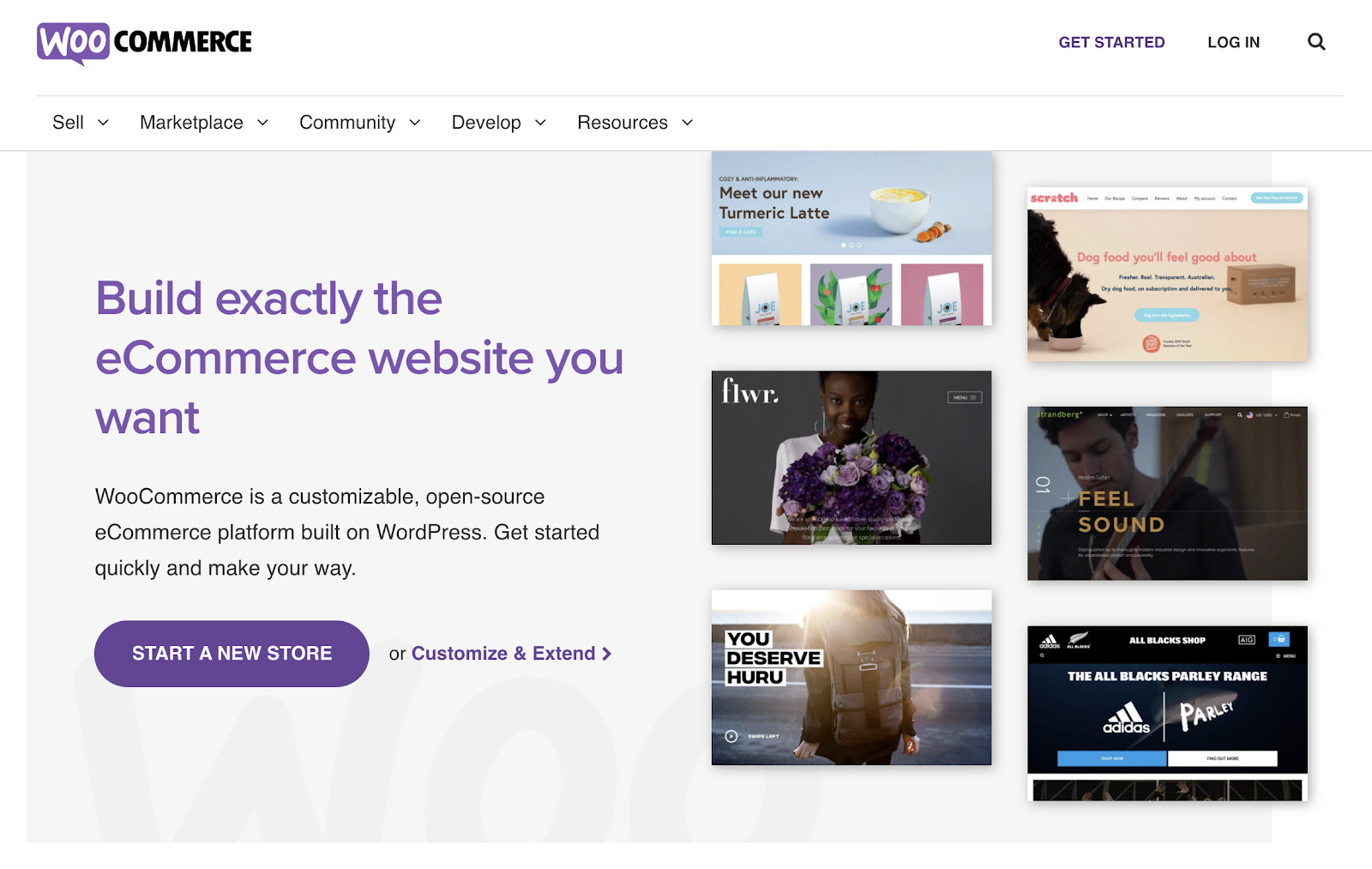
WooCommerce contains many great features such as secure payments, shipping integrations, and tax & inventory management. Like WordPress, those features could be extended with WordPress plugins and different extensions especially built for WooCommerce.
9. Volusion
Born in 1999, Volusion is one of the first e-commerce website builders in the world. It has most of the basics such as various payment gateways, a homepage and product pages, and the ability to sell unlimited products. You can also check the inventory and analytics to understand your business more properly.
However, the website navigation sometimes could be very challenging; and it doesn’t allow digital products like ebooks, art, or music as well.
